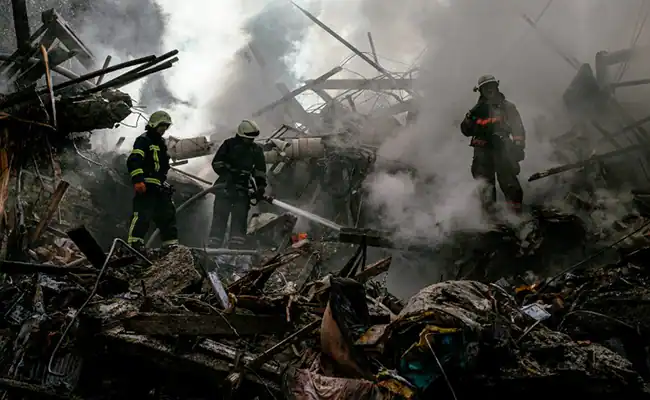| Translate This News In |
|---|
A draught resolution denouncing Russia’s annexation of four areas of Ukraine will be debated at the UN General Assembly on Monday as Western nations work to highlight Moscow’s worldwide isolation. The decision to bring the issue before the General Assembly, where each of the 193 UN members has one vote and no one has veto power, was made after Russia used its veto to thwart a similar motion in a Security Council meeting on September 30.
Failure to take action by the General Assembly—a decision is anticipated as soon as Wednesday—would give other nations “carte blanche to do similar or to recognise what Russia has done,” he added.
According to a draught of the resolution obtained by AFP, Russia’s “attempted illegal annexations” of the Ukrainian regions of Donetsk, Luhansk, Zaporizhzhia, and Kherson after “so-called referendums” are condemned and it is emphasised that these actions are “without legal standing under international law.”
It demands the immediate removal of Russian forces from Ukraine and appeals on all nations, international organisations, and agencies to refuse to acknowledge the annexations.
Russia has responded by writing to all member states and criticising “Western delegations” for their activities, which “have nothing to do with defence of international law and the ideals of the UN Charter.”
He criticised the “great pressure” that the US and its allies, in his words, were applying to other member countries.
Nebenzia suggested that, in light of the situation, the General Assembly vote by secret ballot, a very uncommon practise often reserved for decisions like choosing the permanent members of the Security Council.
“Some desperation,”
According to Paulina Kubiak, a spokeswoman for the General Assembly, such a method would first require a vote of the member states—and not by secret ballot.
As the foremost supporter of the UN’s principles, the secretary-general outright condemned the annexations.
These comments “suggest that this is not really about the West versus Russia,” the US official claimed.
No other nation supported Russia in the Security Council decision, despite the fact that four delegations — China, India, Brazil, and Gabon — abstained.
Many developing nations may be tempted to join those who have complained that the West is focusing solely on Ukraine this week.
The results of the ballot will show just how isolated Russia has grown. Given the high stakes, supporters of the draught are using every effort to sway possible abstainers.
Two earlier General Assembly resolutions in March that denounced the Russian invasion received 141 and 140 votes in favour, compared to five votes against (from Russia, Belarus, Syria, North Korea, and Eritrea), 35 and 38 abstentions, and five abstentions.
With less unanimity, a third vote to expel Russia from the UN Human Rights Council was approved in April.
There were 58 abstentions, 24 against, and 93 votes in favour.


















